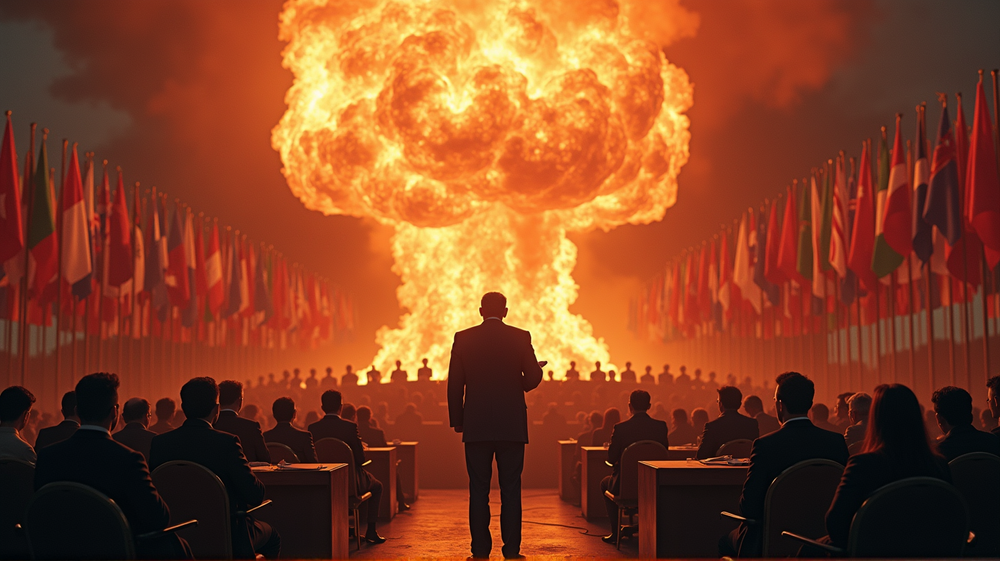In the midst of a turbulent geopolitical landscape, Turkish President Recep Tayyip Erdogan has delivered a stinging indictment of Israeli Prime Minister Benjamin Netanyahu, intensifying global scrutiny over Israel’s actions and sparking fervent debate. Drawing a controversial comparison, Erdogan likened Netanyahu to Adolf Hitler, underscoring what he perceives as a radical and fascist ideology driving Israel’s governmental actions.
A Controversial Comparison
During his return from an emergency Arab-Islamic summit in Doha, Erdogan fiercely criticized the Israeli airstrike that targeted a Hamas negotiation team in Qatar. His rhetoric, described by some as inflammatory, attempts to align Netanyahu’s policies with those reminiscent of historical tyrannies. “Just as Hitler could not foresee the defeat that awaited him, Netanyahu will face the same ultimate fate,” Erdogan emphasized, making a point that has sent shockwaves through international discourse.
Challenging International Norms
Erdogan’s statements did not stop at fiery rhetoric. He condemned the attack on the Hamas delegation as a direct affront to international law, framing it as a “blatant challenge to international order.” This bold narrative positions Erdogan as a formidable advocate for reorienting global discussions towards Palestinian recognition and the broader implications of such military actions.
Engaging the Western World
Erdogan called upon Western nations to reevaluate their stance on Palestine, asserting that increased recognition would apply necessary pressure on Israel to reconsider its strategies. As stated in Middle East Monitor, the Turkish president is set to amplify this call at the upcoming United Nations General Assembly, seeking to galvanize global support for what he terms as “the front of humanity.”
Türkiye’s Diplomatic Dance
Simultaneously, Erdogan’s focus extends to Libya, where Türkiye’s stance on sovereignty and unity illustrate its broader regional ambitions. Erdogan reiterated Türkiye’s commitment to Libya’s territorial integrity while highlighting diplomatic efforts with eastern Libya counterparts. This multifaceted approach showcases Türkiye’s strategic diplomacy, striving for regional peace and stability.
Conclusion
Erdogan’s incendiary comments have not only escalated tensions but also placed a spotlight on the dynamics of Middle Eastern politics. As he prepares to address these issues on global platforms, the world watches to see how these narratives of power, law, and diplomacy will unfold. Amidst these debates, the role of diplomacy and international law will be critical in shaping future outcomes.












